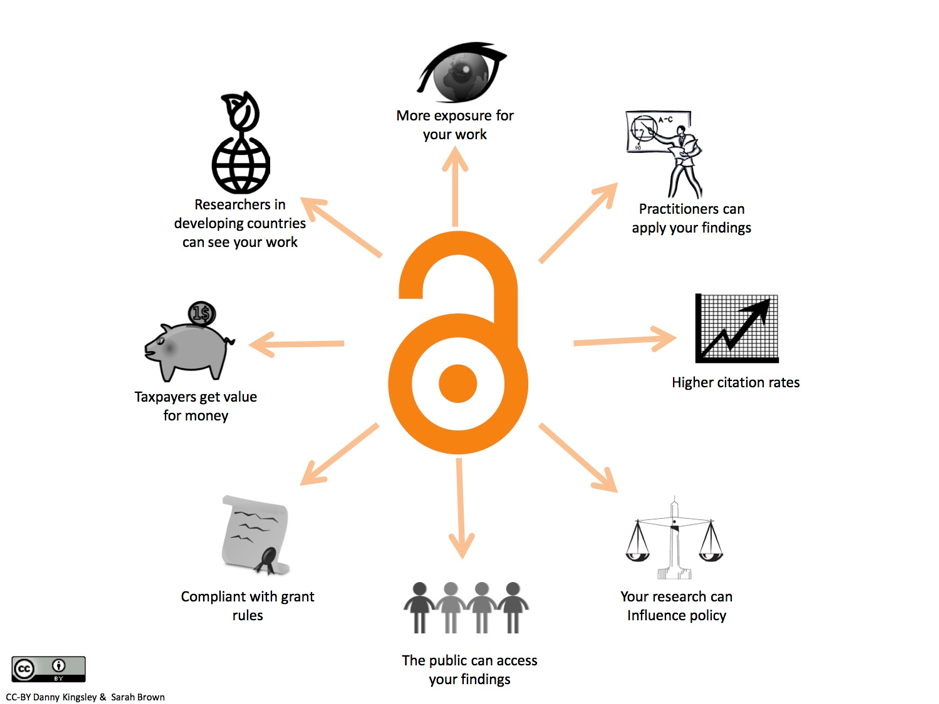
The Biological Sciences Libraries Team aims to help all researchers make sure their outputs are available as openly as possible, supporting the University's Open Research principles.
Open Access
Making your publications and data available via Open Access helps to ensure your research is seen by the widest possible audiences, including research colleagues in the Global South as well as the general public. Many researchers across the University are funded by bodies such as UKRI and the Wellcome Trust, both of whom now require immediate open access upon acceptance of an academic paper to a journal. The University has recently launched its Self-Archiving Policy, which uses rights retention to ensure that researchers can still publish in their journal of choice and comply with their funder policies. To find out if your chosen journal complies with your funder’s Open Access policies, you can use this Journal Checker Tool.
You can browse the University's openly available work via our institutional repository, Apollo. If you’re a researcher wanting to deposit your work via Symplectic Elements, follow the instructions on the Open Access pages.
Research Data Management
A large part of ensuring that data are openly available and accessible is correctly managing that data before, during, and after its production. We encourage good data management as part of a wider University of Cambridge Research Data Management Policy Framework. Researchers should ensure their data are adequately stored and backed-up, with good supporting metadata and version control, adhering to the FAIR Principles. Data management plans are now a common part of grant applications, and there is plenty of help available for writing these, such as library training supplemented by online tools like DMPOnline. Researchers are encouraged to share their data openly where possible, while also protecting any sensitive or confidential data as required. To support this, data can be uploaded to the University’s institutional repository.
We also support the University’s Data Champions programme, run by the Office of Scholarly Communication. Data Champions are local advocates for good data management and FAIR research principles, and can be contacted about any research data issue. The current Biological Sciences Libraries Data Champions are:
- George Cronin (Library Manager, Biological Sciences)
- Lucy Woolhouse (Genetics Librarian)
Training and development opportunities
The Biological Sciences Libraries Team provides training on Open Research topics, or you can contact us any time for 1-2-1 support. Our Research Skills Series, which is run on a termly basis, covers many Open Research elements such as research data management, creative commons licencing, copyright and publication. We are happy to help with any questions you may have about getting your work made available openly.
In the wider University, researcher training is run by the Office of Scholarly Communication and the Researcher Development team.





